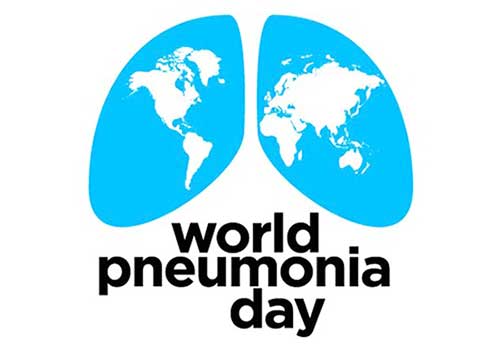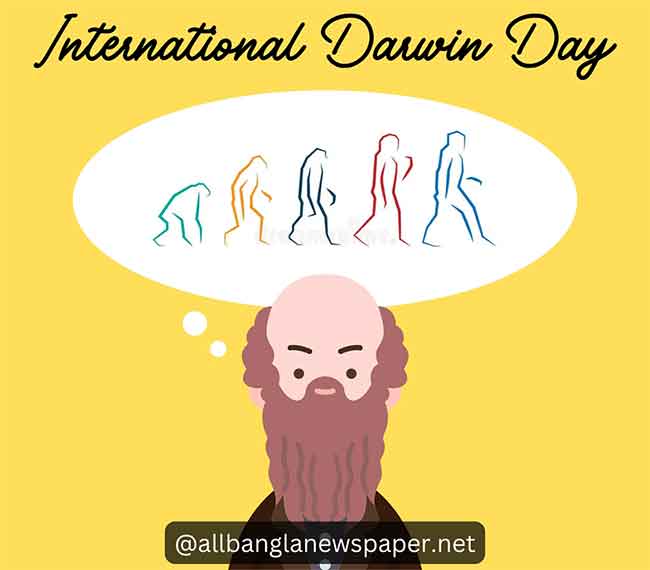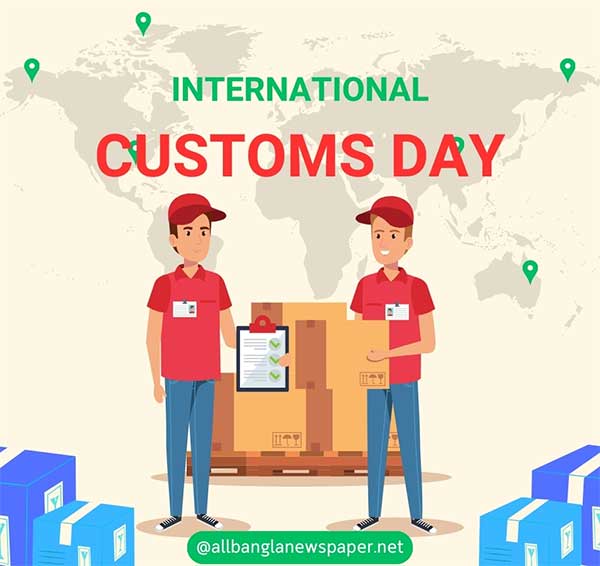
Every year, World Pneumonia Day serves as a crucial reminder of the severity and prevalence of pneumonia around the globe. Established to increase awareness and encourage action, this day underscores the pressing need for access to vaccines, treatment, and education to curb the illness. Pneumonia, often termed the “forgotten killer,” remains a primary cause of death in children under five despite being preventable and treatable. This day also aligns with broader global health initiatives aimed at reducing childhood mortality and improving health in developing regions. Recognizing its importance in health agendas worldwide, World Pneumonia Day is a call for unity and response against a significant yet often overlooked disease.

The Significance of World Pneumonia Day
World Pneumonia Day, observed on November 12 each year, highlights the urgent health threat posed by pneumonia, particularly among children in lower-income nations. Established in 2009 by the Global Coalition Against Child Pneumonia, this observance was created to combat the lack of attention and resources dedicated to pneumonia prevention and treatment. Despite advancements in medicine and healthcare, millions of lives, particularly young children, remain at risk due to limited healthcare access, inadequate nutrition, and environmental factors that exacerbate vulnerability to pneumonia.
Understanding Pneumonia: Causes and Risk Factors
Pneumonia is an infection that inflames the air sacs in one or both lungs, leading to symptoms like coughing, fever, and breathing difficulties. It can be caused by a range of pathogens, including bacteria, viruses, and fungi. Among children, pneumonia is often caused by Streptococcus pneumoniae and Haemophilus influenzae type b (Hib), while Respiratory Syncytial Virus (RSV) is a common viral cause.
Risk factors for pneumonia vary but often include compromised immune systems, malnutrition, and exposure to environmental pollutants. Children and older people are particularly vulnerable, as are people living in crowded or poorly ventilated-conditions. Pneumonia risk is exceptionally high in developing countries where these conditions are prevalent, making the disease a pressing issue for health systems globally.
World Pneumonia Day and Global Health Goals
The significance of World Pneumonia Day extends beyond individual health, intertwining with Sustainable Development Goal 3, which aims to ensure healthy lives and promote well-being for all ages. As the world pushes to reduce child mortality rates, combat infectious diseases, and improve health accessibility, pneumonia prevention and treatment become focal points for reducing overall mortality.
Global organizations like the World Health Organization (WHO) and UNICEF are deeply involved in campaigns for pneumonia prevention. These include promoting vaccinations, strengthening healthcare systems, and providing resources to educate communities on recognizing symptoms early.
Vaccination: A Primary Line of Defense Against Pneumonia
Vaccination plays an essential role in preventing pneumonia, especially in vulnerable populations. Vaccines against Streptococcus Pneumoniae and Haemophilus influenzae type b (Hib) are highly effective in preventing many forms of bacterial pneumonia. The pneumococcal conjugate vaccine (PCV) has been widely distributed in low and middle-income countries, reducing pneumonia cases in children.
Despite the availability of vaccines, access remains a challenge in many regions. World Pneumonia Day advocates for equitable access to these life-saving vaccines, urging governments and organizations to prioritize vaccination programs. Immunization, combined with initiatives to improve living conditions, offers a promising strategy for reducing the global pneumonia burden.
Nutrition’s Role in Pneumonia Prevention
Proper nutrition is fundamental to maintaining a robust immune system, which can help protect against respiratory infections like pneumonia. Malnutrition, particularly in children, weakens immunity and increases susceptibility to infections. Protein, vitamins A and C, and other essential nutrients are critical for developing and sustaining a robust immune response.
Organizations focusing on child health emphasize the importance of nutritional support as a preventive measure for pneumonia. In many low-income areas, initiatives to provide nutrient-rich meals or supplements to children play a vital role in overall health and in reducing the impact of diseases like pneumonia.
The Role of Environmental Factors in Pneumonia Incidence
Environmental conditions also contribute significantly to pneumonia risk. Exposure to indoor air pollution, often from cooking stoves and heating systems using wood or coal, is a significant risk factor. Inadequate ventilation and crowded living spaces compound this risk, creating environments where respiratory pathogens can quickly spread.
Improving air quality and living conditions is a fundamental part of global pneumonia prevention efforts. World Pneumonia Day raises awareness about these environmental hazards and advocates for cleaner energy solutions, particularly in developing regions where indoor air pollution is a prevalent concern.
Empowering Communities Through Education and Awareness
Education is a powerful tool in the fight against pneumonia. Community-based education programs can inform families about symptoms to watch for, such as difficulty breathing, fever, and persistent coughing. Empowering people with knowledge enables early intervention, which can save lives.
World Pneumonia Day promotes these education initiatives by highlighting stories and information that resonate with affected communities. By increasing awareness about prevention, vaccination, and treatment options, communities can take proactive steps to manage and prevent pneumonia.
The Importance of Access to Medical Care
Access to timely and adequate medical care is crucial in treating pneumonia. In many low-income areas, however, healthcare facilities may be distant, under-resourced, or lacking in necessary medications and equipment. World Pneumonia Day serves as a reminder of the need to strengthen healthcare infrastructure and make primary healthcare accessible to all, regardless of socioeconomic status or geographical location.
In developed countries, where healthcare resources are more readily available, the emphasis remains on prompt diagnosis and treatment. For vulnerable populations, having access to affordable healthcare and transportation can make a difference in survival rates.
World Pneumonia Day and Broader Public Health Initiatives
World Pneumonia Day aligns closely with other global health observances. For instance, it complements World Urbanism Day, which raises awareness about sustainable cities and urban planning. Access to healthcare, clean air, and adequate housing are essential for urban populations, and addressing these issues can reduce the impact of diseases like pneumonia.
Similarly, International Inuit Day Celebrates Inuit Culture and Advocates for Indigenous Rights. Like many indigenous communities, Inuit populations may face health challenges due to limited healthcare access and environmental risk factors.
The Role of Global Organizations in Pneumonia Awareness
Various global organizations play a crucial role in addressing pneumonia on World Pneumonia Day and throughout the year. WHO, UNICEF and the Global Coalition Against Child Pneumonia are central to spreading awareness, promoting research, and advocating for policies to fight pneumonia. These organizations also work closely with governments and local groups to enhance healthcare systems, ensuring that the resources and education required to prevent pneumonia are available where they are needed most.
The Economic Impact of Pneumonia Prevention and Treatment
Pneumonia not only affects individuals’ health but also imposes a significant economic burden. In many communities, the cost of pneumonia treatment can drive families into poverty due to lost wages and healthcare expenses. Investing in pneumonia prevention and treatment infrastructure benefits public health and economic stability, as it minimizes lost productivity and medical costs associated with the disease.
How Individuals Can Help Combat Pneumonia
World Pneumonia Day provides an excellent opportunity for individuals to support the fight against pneumonia. There are many ways to contribute, from donating to organizations focused on pneumonia prevention and education to raising awareness in one’s community. Volunteering with local or international health organizations, supporting vaccination drives, or simply sharing information on social media can have a positive impact.
World Pneumonia Day shines a light on a preventable yet deadly disease that continues to impact millions around the world, particularly children in developing countries. By raising awareness, promoting vaccinations, and advocating for access to healthcare, World Pneumonia Day aims to drive meaningful change in global health outcomes. This day encourages everyone—individuals, communities, and organizations—to come together in the fight against pneumonia. Through combined efforts, we can ensure that preventable deaths from pneumonia become a rarity, creating healthier futures for generations to come.
#WorldPneumoniaDay #GlobalHealthAwareness #ChildhoodMortality



